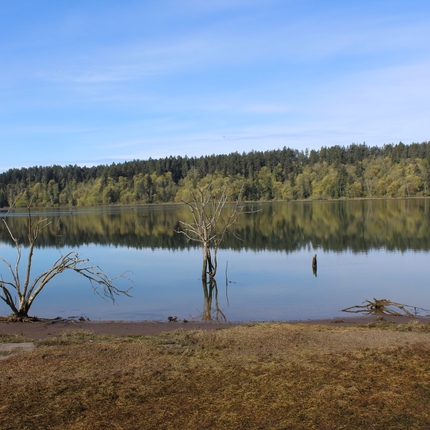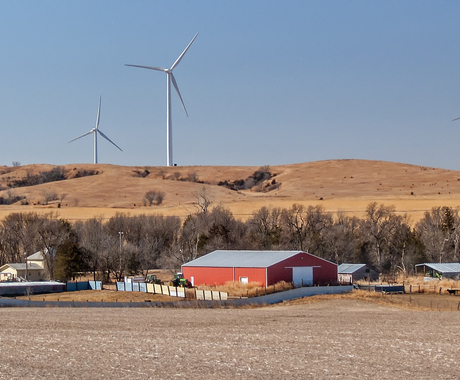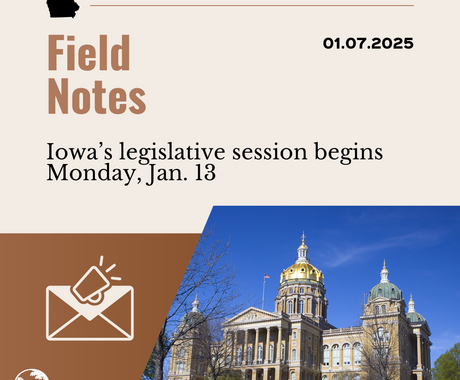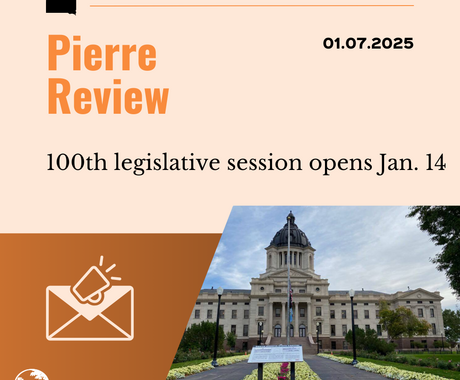By Teresa Hoffman, former staff member
As Iowans continue to work through a year headlined by a global pandemic, racial justice, and most recently, a derecho that hit central and eastern portions of the state, the Center for Rural Affairs remains committed to talking about and providing resources to ensure a resilient future.
With in-person events canceled due to COVID-19 concerns, Policy Associate Cody Smith took to the internet for the Center’s most recent Rural Resiliency Forum last month.
Cody was joined by State Sen. Zach Wahls of Coralville, Iowa. The first-term Democrat said when he decided to run for the Iowa Senate in 2017, he never imagined that three years later, the country would be dealing with a once-in-a-century global pandemic.
He said it has been a learning experience for everyone.
“The experience as a state legislator has been one primarily of trying to stay on top of the news and stay up to date about what is happening in my district and across the state and trying to connect people with the resources they need and the information they need,” he said.
The state senator has also been part of discussions surrounding racial justice and said he was proud to play a role in getting “common sense police reforms” and other changes made before the Iowa Legislature adjourned for the year.
“But, I do think we do have a long, long way to go for our state, for our country before we can really say, I think honestly, that Black lives matter in America and that we’ve addressed these racial inequities that have been troubling America since before we were even formally the United States,” he said.
The hour-long forum also featured discussions on climate change, renewable energy, food system improvements, rural broadband, housing, soil health, and water quality.
Climate change discussion, clean energy investments need to continue
Addressing climate change, Sen. Wahls said the issue is real and the consequences are going to be very significant.
“But, the good news is that the significance of those consequences is up to us and what we do here in the next 5, 10, 15, 20 years,” he said.
Sen. Wahls believes there will be many opportunities for rural communities to play a role when it comes to renewable energy because there is the space needed for wind turbines and solar panels. He noted the state has seen major investments in solar energy the last couple of years in southeast Iowa.
“Obviously, we know that wind energy is a big part of Iowa’s present, and I think that sunshine powered solar is going to be a big part of our future going forward, just because you can’t grow more corn than anywhere else in the world without a whole lot of sunshine,” he said.
Clean energy has also been good for air quality and for jobs, Sen. Wahls said, adding there are a lot of good and high paying jobs in the renewable energy field.
Pandemic shines light on need for rural broadband improvements
Sen. Wahls said the state needs to move forward with improvements to rural broadband services. It’s one of the topics he plans to address during the 2021 session.
“Especially in the pandemic, we are seeing how important it is to have strong access to the internet for our rural communities,” he said.
In response to a question from a participant about what the Legislature can do to address the issue, Sen. Wahls said the cost to lay the fiber network remains high, therefore lawmakers need to figure out how they can pair state and federal dollars to assist companies who do that work.
At the same time, he said lawmakers and providers need to learn more about challenges Iowans are experiencing in accessing rural broadband services.
Continued education needed on soil, water quality
While he disagreed with some aspects of Gov. Kim Reynolds’ Invest in Iowa Act, Sen. Wahls said he’d like to see the issue continue to move forward as he believes there is a need to address outdoor recreation and soil and water quality issues.
“At this point, it’s hard to say what it might look like in 2021,” he said.
Soil and water quality continue to be important issues, Sen. Wahls said, and he believes creating more economic incentives to get farmers to invest in conservation practices is a good idea, but continued education is key.
Recovering from economic hardship
Addressing a question from Cody about how the state can help rural communities recover from the economic hardship caused by the COVID-19 pandemic and be more resilient to unforeseen challenges in the future, Sen. Wahls reiterated the need to improve broadband in rural areas.
“Continued investments in rural broadband are going to be important because of the economic opportunity that that creates for new businesses to open up and consumers to be connected to their friends and family, access some of those health care services, especially through things telehealth, which again has taken on a whole new importance when it comes to the COVID-19 pandemic,” he said.





